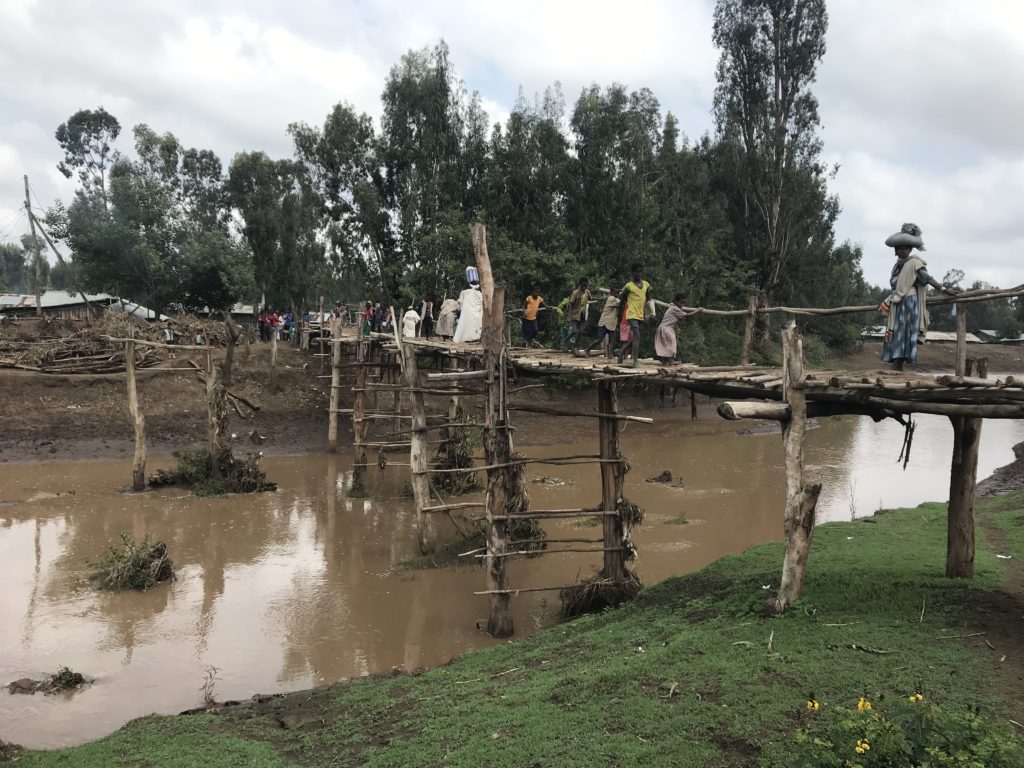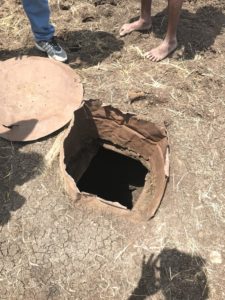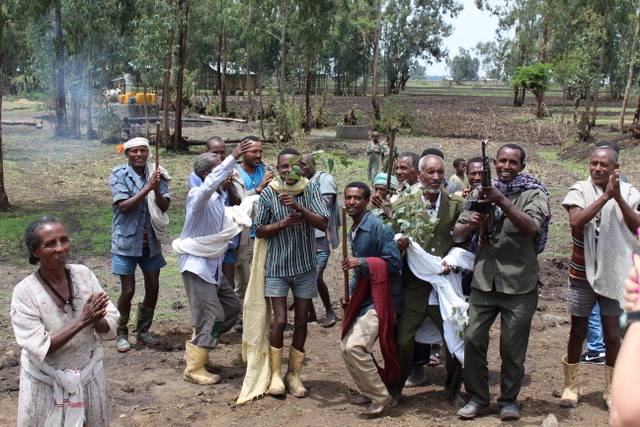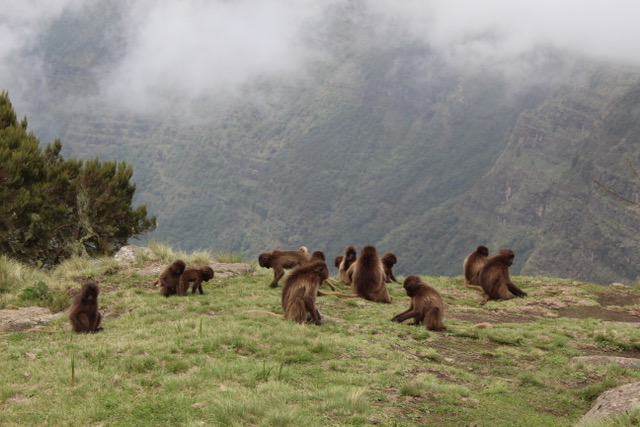
Madison reflects on the hard work done by the people in the villages where we work, and the reminder that it serves.
Today we were out in the field visiting water projects and potential sites. Usually when we’ve visited sites, we’ve been able to drive pretty close to the site before the area becomes what we call a “no drive zone,” and then we proceed to walk the rest of the way to the site.
But today was not one of those days. Because of the conditions of the roads, our truck wasn’t able to get us close to the sites, so we had a long day of hiking. While some days we’ve visited as many as four sites, today we only went to two. At one site there was water project in progress and at the other site construction on a well had not begun yet.

One of the sites we visited on Monday, a well is the current source of water for a community in Gondar. There is no pump, and no cover for the well. This means that rats, insects, and dirt can get into the water and that the people of the community have to drop buckets into the well and drag it up to get water. A new hand dug well funded by Water to Thrive will replace this well soon. – Madison
Although we visited just two sites, we hiked almost 14 miles today! We all joked that we can say we completed a half marathon now …we just won’t say it took us five hours to finish. When we got back to the hotel we were all hot, sweaty, tired, hungry and sore.
We are all so exhausted after today but we had a nice hot dinner and we have hot showers and warm beds waiting for us. I’ve been thinking about the people we have met on our site visits. I’ve been thinking about the farmers with calloused hands who are on their hands and knees taking care of their crops. I think about the little kids with whips in their hands to oversee the oxen who till the soil. I think about the little girls as young as three or four with babies on their backs. We were all so tired from hiking today but we have met people who hike miles and miles every day to fetch dirty water from a spring and then hike miles back carrying their full 40-pound jerry can. After their hiking, they don’t have a hot shower or a pillow full of feathers to go to sleep on.
So far, this experience of traveling through Ethiopia with Water to Thrive has put so many things in perspective for me. I have especially realized how much I have to be grateful for. When I complain after a hard day’s work, I will think about the hard work that the people of these communities do every day and remember to count my blessings.



About The Author: Water to Thrive
More posts by Water to Thrive